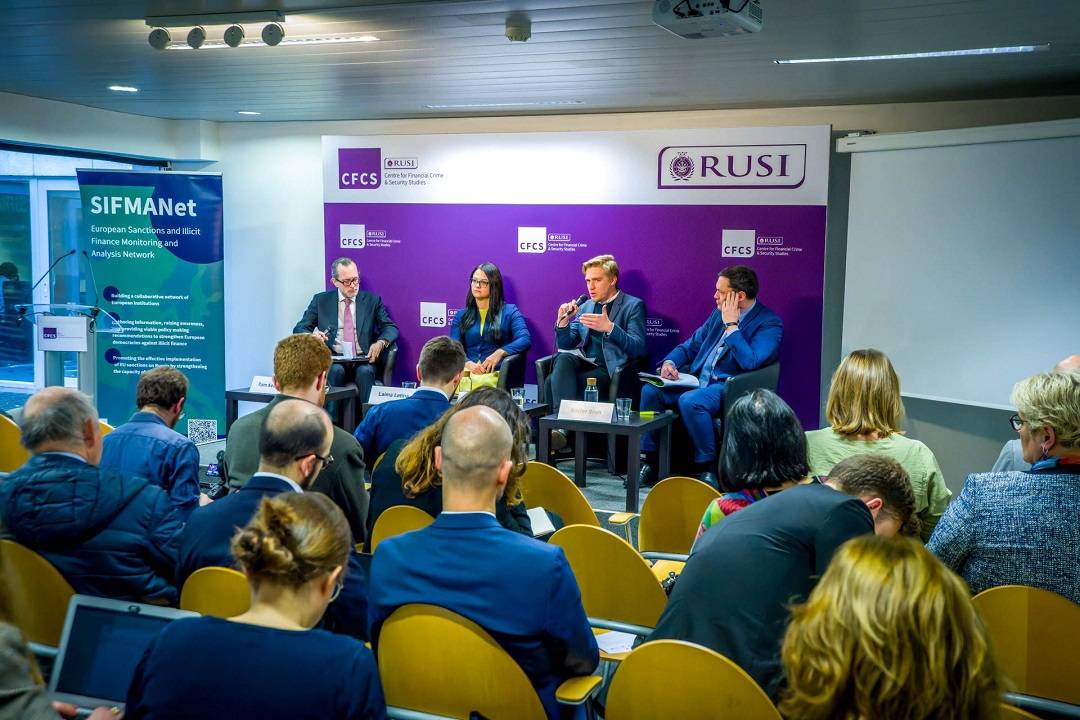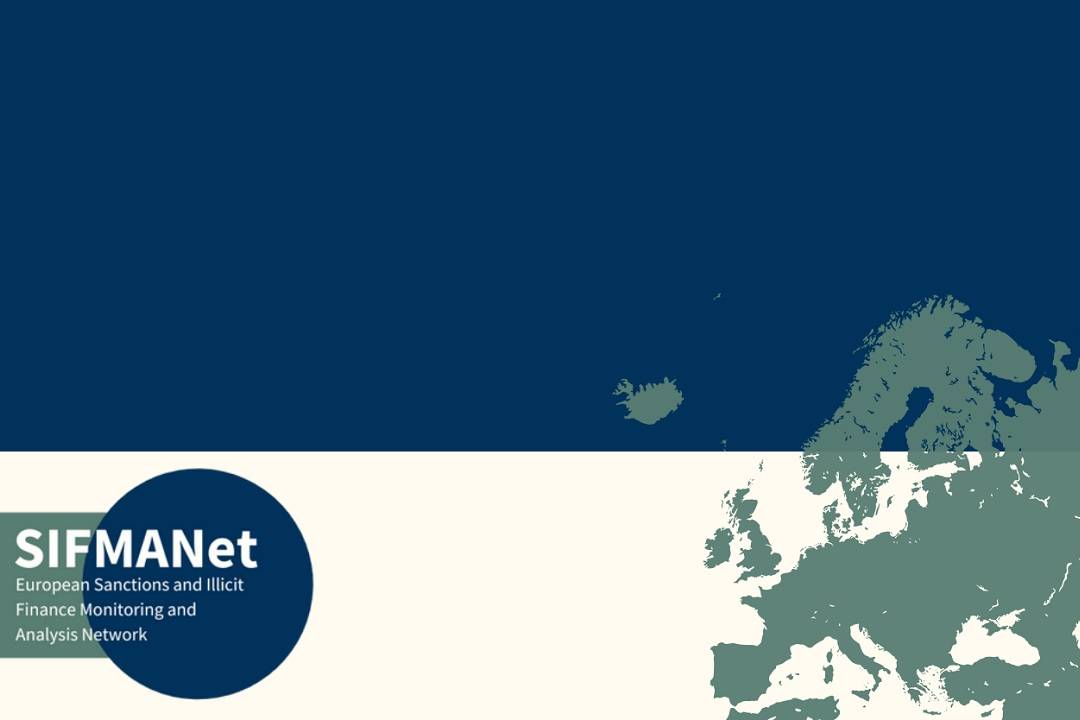A report summarising the discussions at the Euro SIFMANet Summit, held in Brussels on 8–9 March 2023.
The European Sanctions and Illicit Finance Monitoring and Analysis Network (SIFMANet) held its two-day SIFMANet Summit in Brussels on 8–9 March 2023. The summit convened key stakeholders from across the EU to assess the progress in the enforcement of sanctions by member states. The consensus approval of 10 restrictive measures packages since February 2022 is a success for the EU. However, a sanctions regime is only as effective as its adequate implementation. After six in-country engagements, SIFMANet members and representatives from the public and private sectors of several member states, as well as the European Commission, gathered to discuss the challenges identified and chart a way forward to strengthen sanctions enforcement mechanisms and propose further tools to maximise the impact of sanctions on Russia.
On Day 1, RUSI’s Centre for Financial Crime and Security Studies (CFCS) and RUSI Europe hosted a closed roundtable discussion with over 30 policymakers, business representatives, law firms, civil society organisations and researchers from across the EU to discuss the status quo and opportunities for its improvement in 2023. The debate addressed the needs of both the public and private sectors, and the key stakeholders in charge of sanctions implementations voiced the challenges they face at an operational level. The resources and capabilities to enforce sanctions vary across member states. Latvia’s financial intelligence unit (FIU Latvia) described how its commitment to the effective enforcement of sanctions requires additional support from the EU, primarily in terms of customs controls. Among the challenges identified, both public and private sector representatives recognised a shortage of financial and human resources dedicated to sanctions. However, the private sector – especially the non-financial sector – required greater support to offset its lack of experience in implementing sanctions. The roundtable closed with a discussion on the challenges for 2023. From the continued presence of Western components in Russian military systems to the legal difficulties to seize frozen assets, participants agreed that much work remains to ensure the effective implementation of sanctions and damage to Russia’s military capabilities.
On Day 2, the summit was opened to the broader public to gather further insights from a whole-of-society perspective. Two panel discussions assessed the current status of EU sanctions and discussed the way forward for a more comprehensive and impactful sanctions regime. The first panel gathered representatives from the European Commission, the Ministry of Foreign Affairs of the Czech Republic and a representative from an international law firm to discuss the leading role of the Commission in drafting the sanctions packages. Panellists highlighted the need to focus now on the implementation of sanctions, understanding the weaknesses in national enforcement capabilities and how to overcome them. The second panel convened speakers from the French Ministry of Foreign Affairs, a representative from the Finance Latvia Association and a sanctions expert. Participants agreed that the way forward must be based on a willingness to become more flexible, revisit the measures in place and learn to accept the changes that are required.
The SIFMANet Summit was a unique opportunity to understand the current state of affairs in the sanctions implementation efforts across the EU. Addressing the specific weaknesses identified across public and private sectors at national level and the need for greater EU-driven harmonisation to overcome deficiencies, the summit concluded with the presentation of the SIFMANet recommendations. The recommendations set out the key findings of the network, charting the way forward on how to make sanctions work.*
* The recommendations can be found here.


SIFMANet has collected recommendations to be actioned in order to overcome the implementation challenges identified and enhance the effectiveness of its restrictive measures against Russia.
- Jim McLeanMedia Relations Manager+44 (0)7917 373 069JimMc@rusi.org


